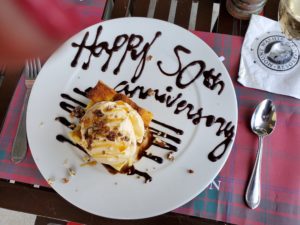Read 1 Peter 5
Key Verse: 1 Peter 5:6,7 “Therefore humble yourselves under the mighty hand of God, that He may exalt you in due time, casting all your care upon Him, for He cares for you.”
Peter concludes this letter with some words for the church leaders (the elders). He encourages them to focus on pastoring and to serve not as hirelings but as obedient servants (v.2). He wants them to avoid arrogance and pompousness and be “examples to the flock of what it means to be a follower of Christ (v.3). He reminds them that any self-seeking, in terms of temporal reward for their labours, pales in the light of the true reward awaiting the faithful under-shepherd “when the chief shepherd appears” (v.4). Then he shifts to the young men and encourages them to emulate the elders and be submissive to them. He says they should “‘humble” themselves, and when the time is right they too will be elevated to responsible leadership (v.6).
Then Peter says, “Cast all your anxiety on Him because He cares for you” (v.7 NIV). Here is the critical point. Any lust for money (v.2), lordly arrogance (v.3), or galloping ambition is rooted in insecurity. We fear poverty, or rejection, or insignificance, and we strive to be ahead of the next guy. We use people.
But we’re to serve people. And to do so means ongoing self-denial. That doesn’t mean, however, that God is blind to our labours. He knows our heart and our needs. And, if we’ll let Him do it, He’ll care for us. We can be sure He’ll care for us completely. Trust Him.
